Uganda flags off vehicle powered by first home-grown engine
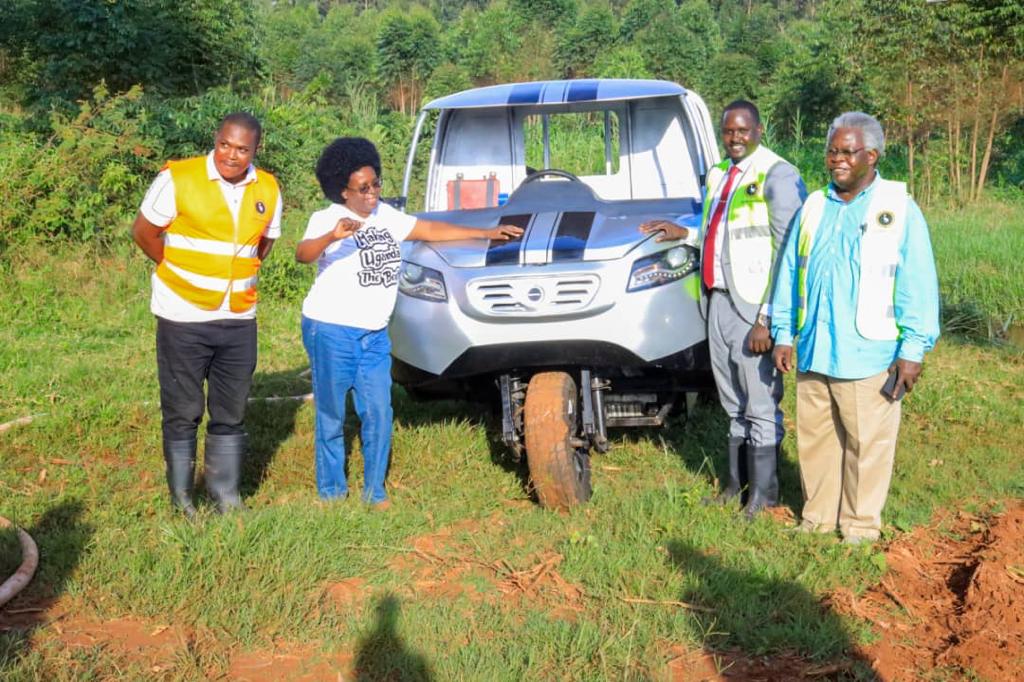
A three-wheeler powered by Uganda’s, and probably East Africa’s, first indigenously designed and manufactured commercially viable internal combustion engine, will be the centre-piece of the country’s 61st independence anniversary celebrations, due in Kitgum on October 9.
The Bingwa – trike; so-called because of its three-wheel base and triple functionality of mobility, power generation and water pumping off a single platform, was developed by Kevoton Motions Engineering Ltd, a collective of self-taught youthful innovators from the informal sector, with minimal formal education. The vehicle that has been in development over the past two years, caps 25 years of efforts by the Kevoton team to manufacture a home-grown automotive engine. It was unveiled to media on September 29 at a function presided over by Dr. Monica Musenero, the minister for science, technology and innovation.
President Yoweri Museveni is expected to launch vehicle during celebrations to mark Uganda’s 61st independence on 9 October in Kitgum District.
Aimed at primary market of farmers in an off-grid setting, the Bingwa is capable of carrying a one-ton payload, generate 6killowatts of electricity and pump 6000 litres of water per hour to a head of 60 meters. Alternatively, the water pumping function can be used for irrigation.
It will provide rural households with affordable mobility to move farm produce to markets, provide electricity for lighting and other light tasks as well as drawing water for domestic use and irrigation.
Rogers Mubiru, a founder and director at Kevoton Motions Engineering, says Bingwa – Swahili for champion – was chosen as the name for the vehicle because it communicates beyond Uganda’s borders, embodies versatility and the winning spirit of its creators.
“We got the idea of developing this engine in 1998 because we didn’t have a product that we could call ours as a country at the time. We feel vindicated that our efforts have resulted in a product that meets not just one but three needs of our mostly agrarian society and we look forward to full commercial production of the trike,” Mubiru told 256 Business News.
Close to 90pc of Uganda’s population lives in rural areas while 80pc of the households are engaged in agriculture according to the Uganda National Population and Housing Census of 2014. However, only 2.9pc of the households use irrigation on at least one plot for the first season and 2.4pc for the second season. On the other hand, just 19pc of households have access to electricity for lighting.
The Bingwa is a product of unprecedented collaboration between the informal sector and academia. It also brought to the fore, the hitherto hidden attributes of a domestic ecosystem that was able to produce 70 of the 128 parts that make up the trike’s engine. They were made by independent suppliers in the automotive industry value chain thereby making the case for localization and value addition to automotive products.
Mubiru and four of his colleagues were first spotted and adopted by lecturers from the College of Engineering and Design at Makerere University, who funded their transition from a wooden steam-powered prototype to all-metal construction. Over the past 5 years, the Kevoton team have been under incubation at Kiira Motors Corporation – learning to work with modern design tools and conventional design language.
The engine casting for the Bingwa’s a 0.8 litre 4-stroke diesel engine was done at the John Lugendo Foundry in Kibuye, Kampala, a facility that runs through two generations of an indigenous Uganan family.
Production of the vehicle, of which three prototypes have so far been build, was made possible by a Ushs 640 million grant from the Science Technology & Innovation (STI) Secretariat through the National Research and Innovation Program (Innovation Fund) under the office of the president.
Dr Musenero says a solution such as the trike which addresses household challenges, is critical in fostering economic development. “Mobility is a fundamental component for rural development, connecting people to opportunities, services and resources necessary for their well-being and economic progress,” she said at the unveiling, adding, “electricity plays a transformative role in rural agrarian communities by boosting agricultural productivity, improving living conditions, enhancing education and healthcare and enabling economic diversification.”
Dr Musenero committed her support to innovators saying as a country, Uganda was “behind schedule in terms of innovations and we must therefore work hard to catch up with other continents. My ministry will continue to provide the needed support to innovators to come up with such products,” she said.
Denis Onekalit Amere, the Member of Parliament for Kitgum Municipality which will host the national celebrations during which the Bingwa will be launched, also welcomed the trike.
“Bingwa will solve challenges of our people across the country who are predominantly farmers and live in rural areas. This is a welcome innovation but we need to ensure that Mubiru and other innovators like him get the support they need so that our country industrializes thereby creating jobs for our people,” he said.
Allan Muhumuza, the Mobility Team leader at the STI Secretariat says that the success of the project has enabled the government to validate an incubation model where a budding innovator, especially in the informal sector is placed under the mentorship of an anchor enterprise like Kiira Motors. “This enables us to transfer skills, utilize existing infrastructure, create institutional capacity and foster synergies towards industrialization,” he explains.
“The key parts which have been locally made are the engine, the chassis, the frame and the body panels. Mass production will be at the Kiira Vehicle Plant in Jinja with initial capacity of 1,000 units per a year growing to 4,000 per a year in the medium term,” says Albert Akovuku, the Director of Production at Kiira Motors.
Sor far, the Uganda Development Bank (UDB) has offered project preparation funding amounting to USD250,000 to facilitate the development of the project business plan and production readiness.

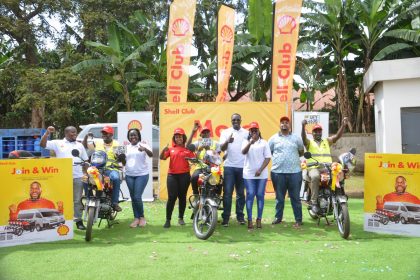 Shell Club rewards first winners with brand new motorbikes in Mbale
Shell Club rewards first winners with brand new motorbikes in Mbale
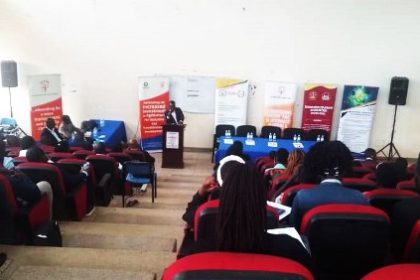 CSBAG roots for increased funding for renewable energy
CSBAG roots for increased funding for renewable energy
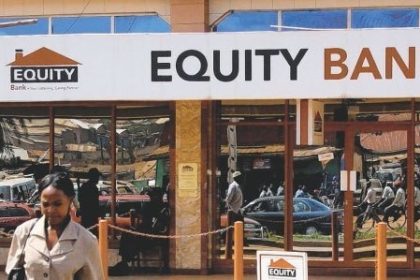 Equity walks tried and tested path to deliver solid half-year
Equity walks tried and tested path to deliver solid half-year
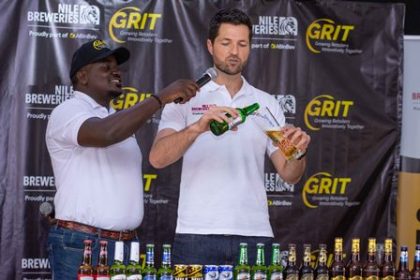 Nile Breweries primes retailers for brave new world
Nile Breweries primes retailers for brave new world
 Uganda calls for collaboration with airlines in fight against illicit trade in wildlife
Uganda calls for collaboration with airlines in fight against illicit trade in wildlife
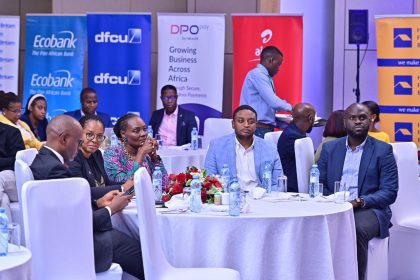 Airline industry top guns dust-off passports for Uganda hosted 55th AFRAA annual meet
Airline industry top guns dust-off passports for Uganda hosted 55th AFRAA annual meet
